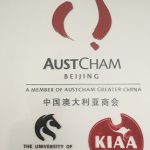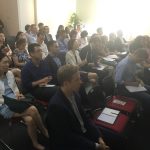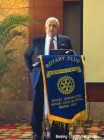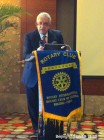Why Daniel?
All candidates up for election in the European Chamber of Commerce in China are capable and merit our vote. I am supporting Daniel Albrecht for vice president EUCCC simply because he stands up to do more for SMEs, an often neglected crowd in the Chamber and in top-level meetings. Mats Harborn is another strong candidate.
See here all candidates:
http://agm.europeanchamber.com.cn/beijing/#candidates
See his video:
Motivation Letter
See: MOTIVATION_LETTER_DANIEL_ALBRECHT
After being an active member in the EUCCC since 2014 I decided to run for the position of Vice President of the European Chamber of Commerce in China (EUCCC).
This is the first time I run for a position on the Board of the EUCCC. I see this as a chance to bring fresh ideas and new energy into the chamber as a board member.
Through my professional experience in Beijing I have become familiar with problems affecting European SMEs such as general legal issues as well as IPR matters. As a small company I have encountered also the difficulties of working in China, being very different from issues faced by multinationals. For SMEs it is more difficult to get support from officials or other institutions due to a lack of a proper lobbying. My clients have been based in several European countries so I am familiar with their different needs and requirements.
I have more than ten years of China experience. In the past I worked for different Chinese and foreign law firms. I have been a member of the EUCCC since 2014, being active in the SME, IPR and CSR Working Groups. Since 2016 I have been helping the China SME IPR Help Desk as an external expert.
In my work for the Chamber, I have devoted myself to write comments and articles for the position papers and other publications and to try to contribute substantial input to change national regulations.
As a Vice president and advocate of the European SMEs I will focus on:
- Strengthen the voice of European SMEs in China
- Implement a nationwide network to defend the interests of the SMEs
- Contribute to the effectiveness of our Chamber
- Promote a strong European identify of the Chamber
- Involve more European members
Biography
Daniel Albrecht, German attorney at law, married with a Chinese wife and has a 14-year -old daughter. As an attorney for more than ten years, he is a trusted lawyer of several embassies. Daniel used to be the founder, as well as a lawyer of DA-Legal, after practicing law in Germany, Japan and China, now he is running his own company, Starke, in China since 2014. With more than ten years’ experience in law area, especially in Chinese Law, he also acts as the external expert of EU China IPR SME Help Desk since 2016. Daniel has not only lots of work experience but also a number of academic experience in Law Field. Having experience as an invited lecturer in universities in Germany, he is now a guest professor of Civil Law of China University of Political Science and Law (CUPL) since 2016. During his career in law, he has published several articles aiming e-commerce, IPR and other law issues in Chinese, Japanese and German magazines.
Daniel also devotes himself to voluntary works. He had been the president of the China-German-Business-Network since 2009 to 2016. From 2015 to 2016, he was the president of the Rotary Club of Beijing. Daniel is also active in different chambers of commerce in China, of which related mostly to SME topics and activities. He always has enthusiasm for organization works and willing to exert efforts.









